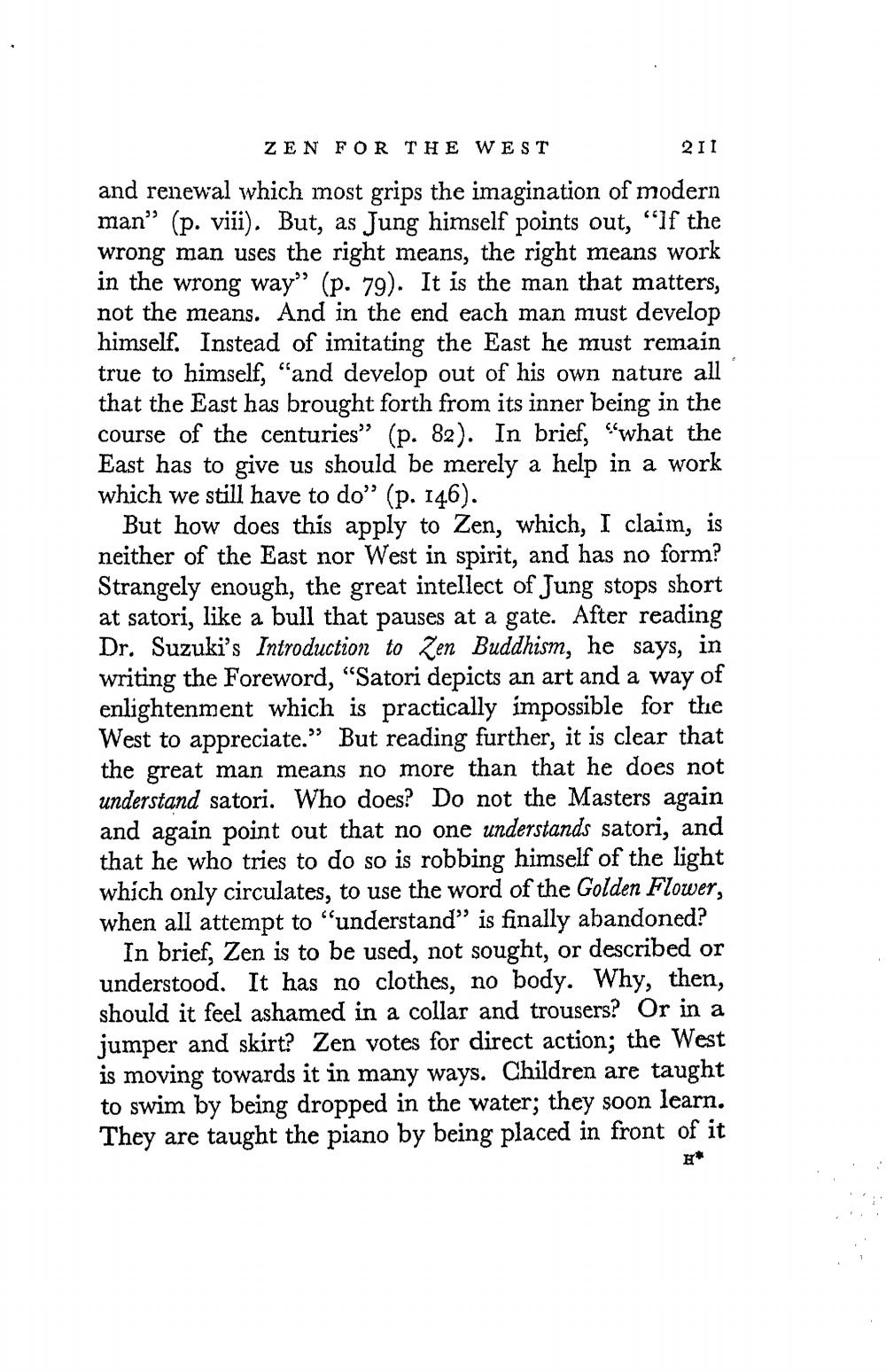________________
ZEN FOR THE WEST
211 and renewal which most grips the imagination of modern man” (p. viii). But, as Jung himself points out, “If the wrong man uses the right means, the right means work in the wrong way” (p. 79). It is the man that matters, not the means. And in the end each man must develop himself. Instead of imitating the East he must remain true to himself, "and develop out of his own nature all that the East has brought forth from its inner being in the course of the centuries” (p. 82). In brief, “what the East has to give us should be merely a help in a work which we still have to do” (p. 146).
But how does this apply to Zen, which, I claim, is neither of the East nor West in spirit, and has no form? Strangely enough, the great intellect of Jung stops short at satori, like a bull that pauses at a gate. After reading Dr. Suzuki's Introduction to Zen Buddhism, he says, in writing the Foreword, "Satori depicts an art and a way of enlightenment which is practically impossible for the West to appreciate." But reading further, it is clear that the great man means no more than that he does not understand satori. Who does? Do not the Masters again and again point out that no one understands satori, and that he who tries to do so is robbing himself of the light which only circulates, to use the word of the Golden Flower, when all attempt to understand” is finally abandoned?
In brief, Zen is to be used, not sought, or described or understood. It has no clothes, no body. Why, then, should it feel ashamed in a collar and trousers? Or in a jumper and skirt? Zen votes for direct action; the West is moving towards it in many ways. Children are taught to swim by being dropped in the water; they soon learn. They are taught the piano by being placed in front of it




